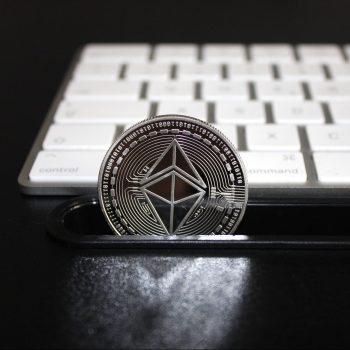
As the technology magazine T3N reports, security software provider Nortonlifelock has built a crypto miner into its Norton 360 security program. Users can volunteer to mine and share the profit with Nortonlifelock. However, users complain in the Norton forum about a forced installation.
Security software should actually protect against crypto miners. Nortonlifelock now wants to turn it into an officially legal business. Norton activated a crypto mining module for a small group of users in summer 2021. The users mine Ethereum with their computer and hand it over to Nortonlifelock if they are successful. The user should then receive a credit note for this. The whole thing can then be found in the “Norton Crypto” item, which provides a “Norton Wallet”.
Crypto miner in Norton 360
According to the manufacturer, the miner is built into and installed in all versions of Norton 360. According to the manufacturer, it can also be deactivated. However, many users report in the forums that the tool activates itself and some have a lot of trouble turning off the miner. Some users even thought that their version had been hijacked by a dangerous crypto miner and was forced to mine. It is also not yet known how other installed protection programs will react on the miner.
Nortonlifelock earns a lot
The fact that a security manufacturer installs a crypto miner is strange enough. The business model preferred by Nortonlifelock is even stranger, because mining is not free for the user. The FAQ for “Are there any costs or fees when mining cryptocurrencies? is answered as follows:
Norton Crypto is included with the Norton 360 subscription. However, there are both mining fees and transaction costs for transferring Ethereum. The mining fee is currently 15% of the cryptocurrency assigned to the miner.
Transferring cryptocurrencies may incur additional fees (so-called “gas” fees) that are paid to the cryptocurrency blockchain network users who process the transaction. If you wish to exchange the cryptocurrency for another currency, the exchange conducting the transaction may charge additional fees. The level of these fees will fluctuate based on cryptocurrency market conditions and other factors. These fees are not set by Norton.
The winner here will probably be Nortonlifelock, as it collects a lot of fees, but does not have to pay for the computing power and the electricity that is currently very expensive in the world.
The prerequisites for mining
Nortonlifelock gives the following information as a prerequisite for a PC to mine.
“To perform this function, the Windows computer must meet the following minimum requirements:”
Operating Systems
- Microsoft Windows 11/10/8/7 * (64 bit)
* Microsoft Windows 7 with Service Pack 1 (SP 1) or higher with SHA2 support
Norton Crypto is not supported on Windows 10 in S mode or on computers with an ARM processor.
Hardware
- Graphics card: Nvidia / AMD cards with at least 6 GB of RAM
- 1 GHz processor
- RAM: 2 GB (at least 512 MB for recovery tool)
- Hard Disk: 300 MB of available space
The prerequisites are set relatively low in order to convince more users to mine.
Mining Ethereum for 2 to 4 dollars a day
If NortonLifeLock arrives with a crypto miner in its software, other companies will soon follow suit. Credit and wallets are sure to attract cyberattackers. In addition, users will also try to mine for cryptocurrency in companies. Users report that their high-performance PCs mine Ethereum worth 2 to 4 dollars per day. However, anyone who has to pay for the electricity they need is unlikely to be doing any special business. It is by no means a business for security.

